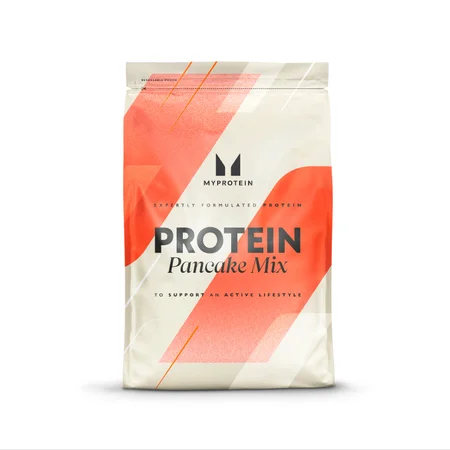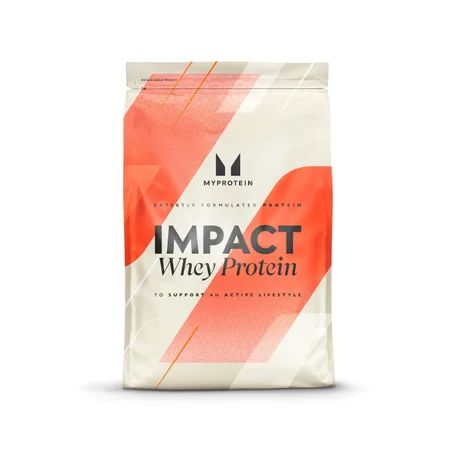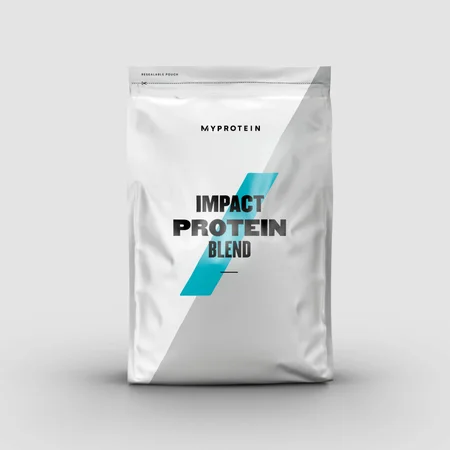Why A High-Protein Breakfast Is So Important

Protein is an essential macronutrient for good health, and if you want to optimize athletic performance, you need to consume plenty of it. One of the best ways to do this is through a high-protein breakfast. But a high-protein breakfast also has many other benefits. Here are some of them...

Protein is essential for many bodily processes
Protein is essential for the growth and repair of body tissue and is especially important for healthy muscle and bones.1 The reference nutrient intake (RNI) of protein for adults aged 19 and over is 0.75g per kg of body weight per day.2 However, for those looking to optimize body composition and performance, an intake between 1.4-2.0g per lb of body weight is recommended.1 This amount can be difficult to reach, so including a protein source as part of your breakfast can help you consume enough to meet your health and fitness goals.
Protein at breakfast helps keep blood sugar and energy stable
Each macronutrient has a different effect on blood sugar. Research suggests that a high protein breakfast may lead to lower blood sugar than a low protein breakfast.3 Avoiding spikes and drops in blood sugar will help keep energy levels stable throughout the day.
A high protein breakfast helps regulate appetite throughout the day
Protein has a high effect on satiety, the feeling of fullness following a meal.4 Evidence shows that consuming a high protein breakfast can reduce the amount of snacking during the day.5 This can result in a lower daily calorie intake and contribute towards a negative energy balance — the most important element of weight loss.6
Getting protein in the first meal of the day helps maintain muscle
In order to maintain muscle mass, it’s important to consume protein at regular intervals throughout the day.7 When we go long periods without consuming protein (eg an overnight fast), protein breakdown may exceed protein synthesis. Consuming protein in the morning will increase muscle protein synthesis and help prevent negative muscle protein turnover.
Healthy high-protein breakfasts to try
How to get more protein at breakfast
Eggs
Whether poached, boiled, scrambled or made into an omelet, eggs are a great protein source first thing in the morning. A medium-sized egg has approximately 7g of protein and micronutrients such as vitamins B12 and D.
Greek yogurt
Greek yoghurt is a convenient way to boost your morning protein intake — it can be mixed with fruit, used in overnight oats, or even added to your porridge. 100g of Greek yoghurt will provide 11g of protein and is also a good source of calcium.
Chicken
Although it may seem a little unusual, cooked chicken breast is a great way to boost the protein content of an omelet. Chicken sausages and chicken bacon can also be used as a healthier alternative to traditional cooked breakfast ingredients.
Bacon
Although a processed meat and high in salt, there’s nothing wrong with an occasional few slices of bacon, and it’s a great source of protein. For a healthy cooked breakfast to set you up for the weekend, combine some lean bacon medallions with a poached egg, grilled tomato and mushrooms.
Whey protein
Whey protein can be a really convenient way to include protein at breakfast if you struggle for time in the mornings. Simply adding some whey protein to a smoothie with some milk can provide a high protein breakfast to have on the go.
Nuts and seeds
Although nuts and seeds are primarily a source of healthy fats, fiber and micronutrients, adding nuts and seeds to porridge, overnight oats or a smoothie can be a way to boost protein content and nutritional profile of your breakfast.
Take home message
Protein is essential for a wide range of bodily processes, and adequate daily protein intake is essential if you want to change your body composition, improve athletic performance and optimize recovery. Consuming protein at breakfast is a great way to increase your daily intake and will also help manage appetite and maintain muscle mass. There are many protein sources that can be included at breakfast time, including eggs, Greek yoghurt and whey protein.
READ THESE NEXT:

1. Ralf Jäger, Chad M. Kerksick, Bill I. Campbell, Paul J. Cribb, Shawn D. Wells, Tim M. Skwiat, Martin Purpura, Tim N. Ziegenfuss, Arny A. Ferrando, Shawn M. Arent, Abbie E. Smith-Ryan, Jeffrey R. Stout, Paul J. Arciero, Michael J. Ormsbee, Lem W. Taylor, Colin D. Wilborn, Doug S. Kalman, Richard B. Kreider, Darryn S. Willoughby, Jay R. Hoffman, Jamie L. Krzykowski & Jose Antonio (2017) International Society of Sports Nutrition Position Stand: protein and exercise, Journal of the International Society of Sports Nutrition, 14:1, DOI: 10.1186/s12970-017-0177-8
2. Department of Health Report on Health and Social Subjects (1991) Dietary Reference Values for Food Energy and Nutrients for the United Kingdom.
3. Rains, T. M., Leidy, H. J., Sanoshy, K. D., Lawless, A. L., & Maki, K. C. (2015). A randomized, controlled, crossover trial to assess the acute appetitive and metabolic effects of sausage and egg-based convenience breakfast meals in overweight premenopausal women. Nutrition journal, 14, 17. https://doi.org/10.1186/s12937-015-0002-7
4. Holt, S. H., Miller, J. C., Petocz, P., & Farmakalidis, E. (1995). A satiety index of common foods. European journal of clinical nutrition, 49(9), 675–690.
5. Alfenas, R., Bressan, J., & Paiva, A. C. (2010). Effects of protein quality on appetite and energy metabolism in normal weight subjects. Arquivos brasileiros de endocrinologia e metabologia, 54(1), 45–51. https://doi.org/10.1590/s0004-27302010000100008
6. Hill, J. O., Wyatt, H. R., & Peters, J. C. (2013). The Importance of Energy Balance. European endocrinology, 9(2), 111–115. https://doi.org/10.17925/EE.2013.09.02.111
7. Areta, J. L., Burke, L. M., Ross, M. L., Camera, D. M., West, D. W., Broad, E. M., Jeacocke, N. A., Moore, D. R., Stellingwerff, T., Phillips, S. M., Hawley, J. A., & Coffey, V. G. (2013). Timing and distribution of protein ingestion during prolonged recovery from resistance exercise alters myofibrillar protein synthesis. The Journal of physiology, 591(9), 2319–2331. https://doi.org/10.1113/jphysiol.2012.244897









